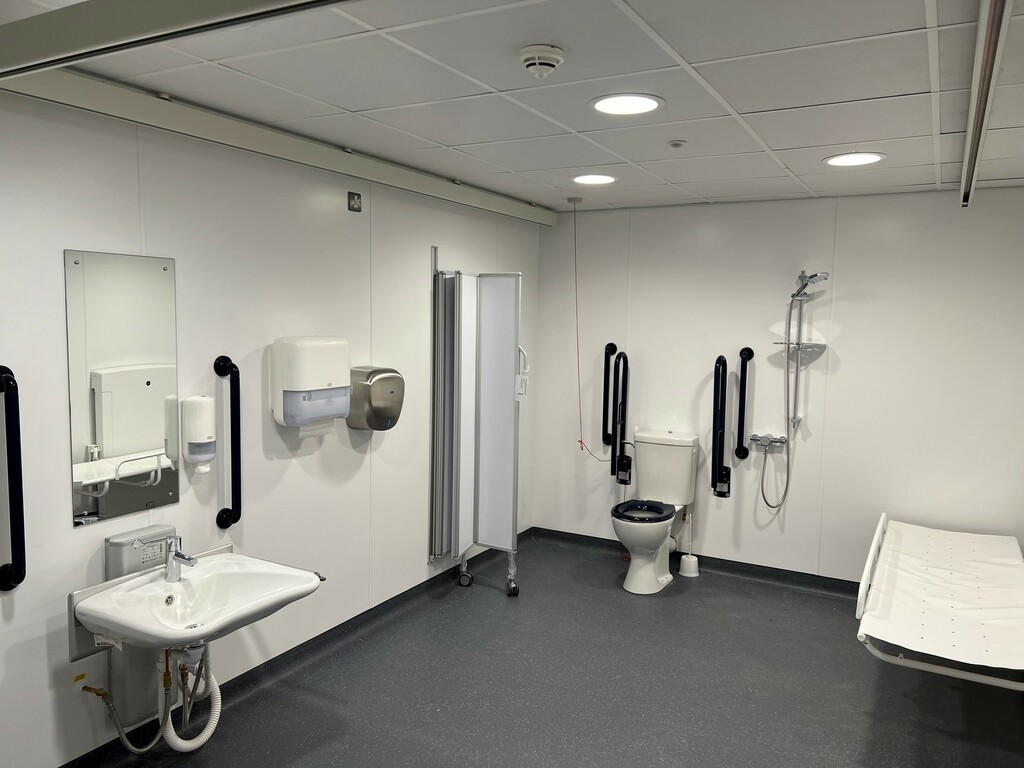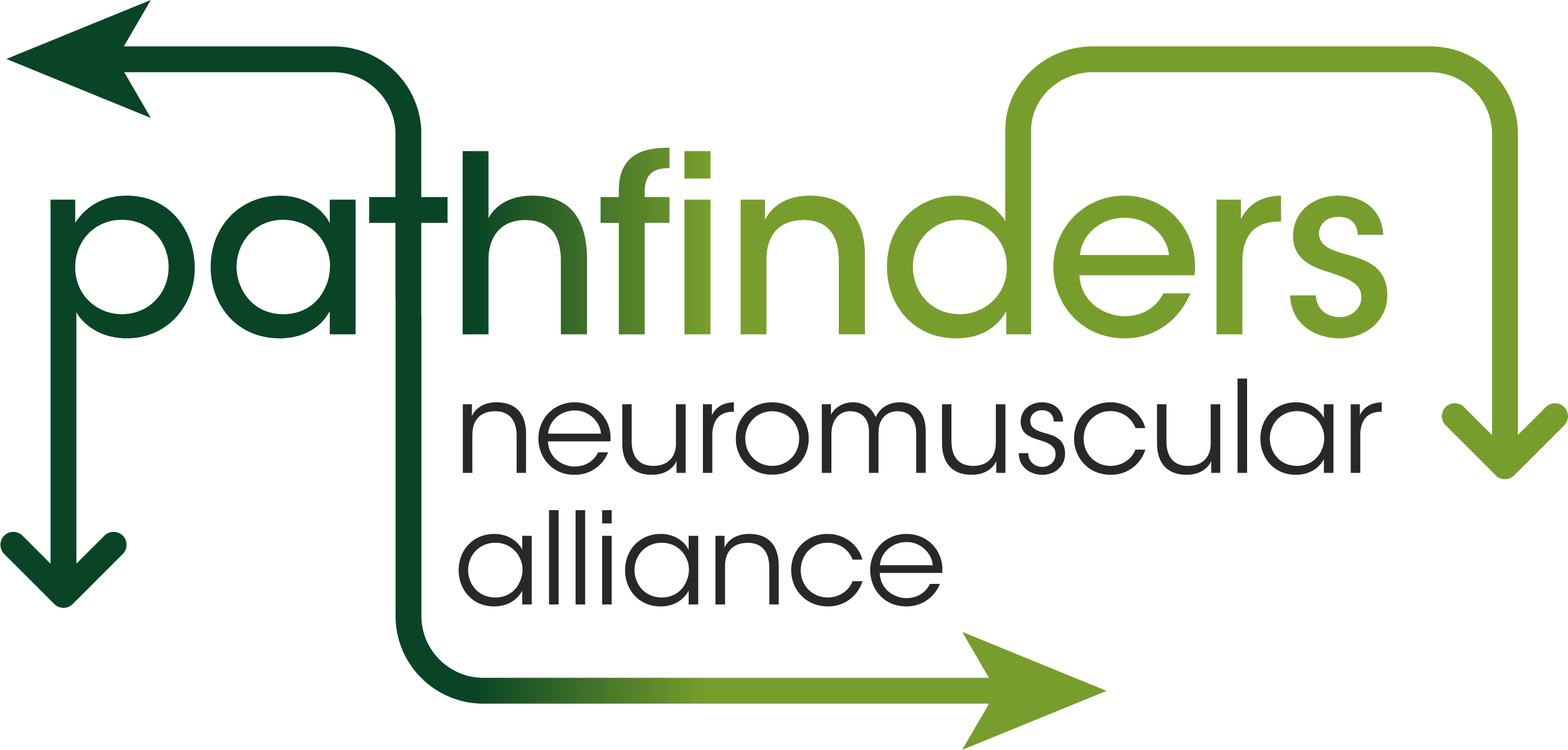BY QUINN CLARK
Hello folks! Welcome to Pathfinders Research Wrapped: where our Research Team picks their favourite muscle-weakening condition-based research done this year and delivers it to you, broken down simply! I’m Quinn Clark, the Pathfinders Research Assistant, and am delighted to bring you two fantastic research papers doing groundbreaking work.
Firstly, our Research Manager, Suzanne Glover, chose the following paper:
Handberg, C. et al. (2024). Challenges faced by women with neuromuscular diseases when having to urinate away from home. Global Qualitative Nursing Research.
This fascinating paper recounts interviewing 12 women with neuromuscular conditions about their experiences with peeing away from home. The women interviewed were between the ages of 30 and 57, and were a mixture of ambulant (being able to walk/move without assistance), and non-ambulant (being unable to walk/move without assistance). Academics asked these women questions about their experiences going to the bathroom outside of the house, such as, “How does urinating away from home differ from being at home?” and “How could urinating away from home be made easier?”
This research found that women with muscle-weakening conditions face lots of problems with peeing away from home. These issues ranged from there not being enough accessible toilets, to bathroom doors being too heavy to move without assistance, to deliberately not drinking so as to avoid pain, anxiety, and accidents. These challenges cause physical and mental health difficulties, such as UTIs (urinary tract infections) and urge incontinence (feeling the need to pee more often than you should). All of these problems make life harder for women with neuromuscular conditions. This paper emphasises the urgent need for better, hygienic, accessible toileting options for the neuromuscular community.

To gain further insight, I interviewed Suzanne about the paper and her personal experiences of this issue:
Quinn: So Suzanne, why did you pick this paper?
Suzanne: I picked this paper because it’s so important to see this issue talked about in academic literature. Most of my life revolves around ‘doing a wee’, and the anxiety around this is heightened when I’m away from home! I have to think: will there be a Changing Places toilet? Will the equipment be charged and ready to use? Is there a bathroom big enough for my portable hoist, and will my PA or family member be able to get the hoist in and out of the car? And if there are none of those things, will I be able to hold it long enough to go to the event?
Quinn: That sounds exhausting, having to think about all of that!
Suzanne: It is—and there’s a knock-on effect. If I have to limit my fluids because there’s no accessible bathroom, I can get migraines, which can really impact my ability to attend other important events. The list goes on and on, and all because of considerations about needing to pee!
Quinn: It’s a good thing that academics are finally talking about this! What does the paper talk about?
Suzanne: Interestingly, the focus of the paper was to get insight into lived experience of problems like UTIs caused by not being able to go to the toilet, and how people understand and manage these problems. Until now, this hadn’t been done in the muscle-weakening community. The paper shows how society doesn’t meet the needs of people with muscle-weakening conditions, because there aren’t enough accessible toilets. This has a negative impact on both physical and mental health, as well as feeling included socially.
Quinn: Thank goodness groundbreaking work like this is being done. What are your hopes for this research?
Suzanne: I hope this paper gets attention in the political sphere to help increase how many accessible bathrooms we have. I also hope medical professionals can understand it’s not always as easy as, “Just drink more water!”. The psychological impact of being anxious about having accidents is a real thing, and being excluded because there’s no accessible facilities can be really harmful.
What incredible insight! Huge thanks to Suzanne for getting this work on our radar.
Next up we have our Research Officer, Mia Myers, who chose the following paper:
Blease, C., and Hunt, J. (2024). We need the first-hand experience of disabled researchers. Empowering patient research. Aeon.
This paper is aiming high when it comes to disabled voices in research. The group of people known as ‘patient-researchers’ are individuals researching their own conditions, often in the face of inadequate care and knowledge from other researchers and clinicians. However, this paper shows how patient-researchers face systemic ableism in academia, and are often not considered to be ‘proper’ researchers regardless of the quality of their work. This leads to people with first-hand knowledge of their disabilities being discounted, and important information which could help treatment and quality of life being ignored.
By collecting first-hand accounts from patient-researchers and the barriers they’ve faced conducting their own research, we see a pattern of disability-specific discrimination which de-prioritises disabled voices in research, writing them off as ‘unqualified’ or ‘unobjective’. This article makes a case for the validity of ‘personal science’: when patients perform research on themselves. In increasing the visibility of personal science and patient-researchers, we could learn a great deal about different disabilities which would be missed from external, non-lived perspectives.

For more information, I interviewed Mia about her paper of choice:
Quinn: What a bold article this is, Mia! Can you tell us why you picked it?
Mia: I chose this article because it is a powerful call for change. It highlights the vital role that disabled researchers play in creating more accurate, inclusive and valuable knowledge. Our lived experiences aren’t just an addition—they’re essential for shaping research and innovations which truly reflect—and cater to—the diversity of human experiences. There must always be space for disabled people in research, both as professionals and participants. This aligns perfectly with the research ethos at Pathfinders, and as a new member of the team I am looking forward to continuing this work in 2025!
Quinn: Well-said! What do you specifically think is important about this paper?
Mia: This paper makes a clear and important point: research about disability should centre on the people it affects the most. Disabled researchers offer insights that nobody else can, and our voices are crucial in challenging outdated stereotypes and driving progress in all fields by representing all viewpoints. When exploring research on disability issues, it’s about ensuring that disability is understood from the inside out, not just through an external lens.
Quinn: It sounds like this paper is the first in many championing disabled researchers. What are your hopes for this research?
Mia: I hope that this paper marks a shift in the way academic institutions, research organisations and policy-makers think about inclusion. Disabled researchers need to be at the forefront of all research, and particularly disability studies. Our perspectives bring depth, authenticity and real-world knowledge that can transform research and society as a whole. Implementing the insights in this article would move us towards creating a future where disabled people aren’t just represented, but have the opportunity to lead the conversation.
Powerful stuff—and something we will be keeping in mind at the Pathfinders Research Team.
There you have it: that was this year’s Research Wrapped. It’s clear that impactful research is being done all of the time, even if it can be tough to get through all the jargon sometimes!
If you have any ideas for research you’d like to see us at the Pathfinders Research Team cover, please do reach out to us! You can contact me at quinn@pathfindersalliance.org.uk.
Thanks for everything, and see you next time!
—Quinn

